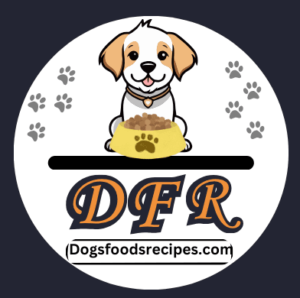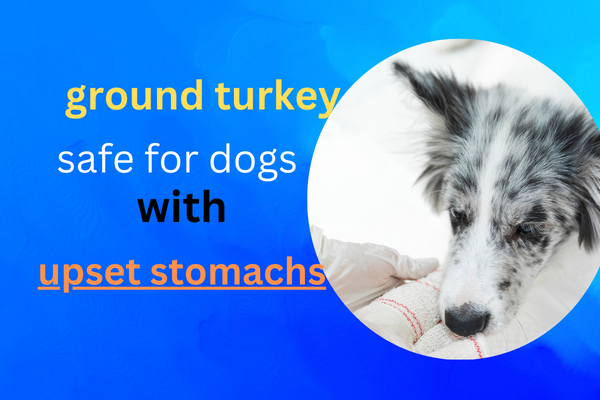Introduction
Sensitive stomachs are a common issue among dogs, causing discomfort and digestive troubles that can affect their quality of life.How it can be switched to a diet designed for these needs can help your pet’s health and happiness dramatically. As an alternative to other proteins, venison is a novel protein and very digestible protein that can be great for dogs with sensitivities. Read on to learn why venison is awesome, how to prepare it, and how to trick your dog into getting great care.
Understanding Canine Sensitive Stomachs
Vomiting, diarrhea, gas or no appetite are symptoms that sensitive dogs may display, such as. These may be due to various factors, like allergies, or food intolerance or digestive condition. But diet helps control these problems—by relieving them and improving digestion. Choosing those ingredients that promote gut health and reduce irritation is vital.
Why Choose Venison for Sensitive Stomachs?
Venison offers several benefits that make it perfect for dogs with digestive issues:
- Lean Protein: While relatively high in fat for our species, venison is extremely low in total fat but high in high-quality protein, making it gentle on the stomach.
- Novel Protein: Venison is less likely to cause allergies than common proteins such as chicken or beef.
- Rich in Nutrients: Venison is rich in necessary vitamins (B12, B6) and minerals (iron, zinc) for normal bodily functioning.
Venison is generally better tolerated than other proteins, as it is simple and digestible.
Core Ingredients for Venison Dog Food
To create a balanced venison dog food recipe, include the following components:
- Venison: Ensure it’s fresh, lean, and free from preservatives.
- Carbohydrates: Add easy-to-digest options like sweet potatoes or white rice.
- Vegetables: Choose gut-friendly options such as cooked carrots or zucchini.
- Fats: Include healthy fats like fish oil for skin and coat health.
- Supplements: Incorporate a canine multivitamin or probiotics for digestive support.

Step-by-Step Recipe: Venison Dog Food Recipe for Sensitive Stomachs
Here’s a simple, vet-approved recipe:
Ingredients:
- 2 lbs of ground venison
- 2 cups of cooked sweet potatoes (mashed)
- 1 cup of cooked zucchini (diced)
- 1 tablespoon of fish oil
- 1/2 teaspoon of canine multivitamin powder
Instructions:
- Cook the venison in a non-stick pan over medium heat until fully browned. Drain excess fat.
- Boil or steam sweet potatoes until soft, then mash.
- Steam zucchini until tender, then dice into small pieces.
- Combine the venison, sweet potatoes, and zucchini in a large bowl.
- Add fish oil and the multivitamin powder. Mix thoroughly.
- Allow the mixture to cool completely before serving.
Serving Size: Feed your dog according to its weight and activity level. Consult your vet for precise amounts.
Essential Nutrients for Dogs with Sensitive Stomachs
Dogs with digestive issues often benefit from specific nutrients:
- Probiotics: Ensure a good gut microbiome.
- Fiber: It regulates digestion and also help to keep the stool consistency.
- Omega-3 Fatty Acids: They reduce inflammation and provide overall health benefit.
And venison already has many of these nutrients and can be supplemented.
Cooking vs. Raw Diets: Which is Better?
There’s an ongoing debate between raw and cooked diets:
- Cooking: It’s safer for dogs with sensitive stomachs and eliminate harmful bacteria.
- Raw Diets: But they’ll retain more of the natural nutrients, and they’ll still be a risk for contamination.
The safer cooked venison recipe for sensitive dogs.
Common Mistakes to Avoid
- Using Low-Quality Meat: Ideally, always source lean venison.
- Skipping Nutritional Additives: Don’t forget that essential vitamins and minerals.
- Overfeeding: Reduce chances of a digestive overload by sticking with appropriate portion sizes.
Homemade Dog Food Storing and Serving
Proper storage ensures freshness and safety:
- For storage of up to 3 days in the refrigerator, store portions in airtight containers.
- We recommend a super quick cooking time (under 3 mins), freeze to be used later in larger batches for up to 3 months.
- Serve it fresh or thaw frozen portions in the refrigerator.
Signs of Improvement in Your Dog
After switching to a venison-based diet, you should notice:
- Less digestive problems, like fewer upset stomachs like diarrhea or vomiting.
- An increase in energy, appetite.
- A shinier coat, healthier skin.
Alternative Protein Sources for Sensitive Stomachs
If your dog is sensitive, venison is excellent but other proteins such as duck, rabbit and fish can do the trick too. If your dog doesn’t improve, or if the development of allergies occurs you should change to one of the following alternatives.
Conclusion
If your dog has a sensitive stomach, switching to a venison-based diet can have a dramatic impact on your dog’s quality of life. Thanks to this easy-to-make recipe, you get balanced nutrition for your pet while they get every meal to make them feel happy.
Give it a try today, and see the difference venison can make!
(FAQs ) About Venison Dog Food Recipe for Sensitive Stomachs
- Can I freeze venison dog food?
For sure it can freeze and it can keep the nutrients and can help with meal prep. For best results, use airtight containers.
- When should I feed my dog?
Break food in 2–3 portions per day depending on the size and energy requirements of your dog.
- Is venison safe for puppies?
Yes, but you can do a few adjustments and also talk to a vet in order to have a balanced nutrition on your dog.
- Can I use Sweet Potatoes instead?
Yes, if it’s not another laborious carb, say white rice or pumpkin.
- What are some good vegetables to make with venison?
These are excellent choices: carrots, zucchini and green beans.
- And yet, how do I know my dog tolerates venison when they scratch when they start eating?
Keep a watchful eye on stool quality, energy levels, and general health once you introduce the recipe.



